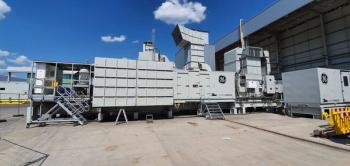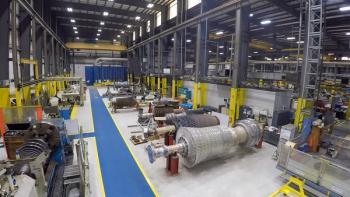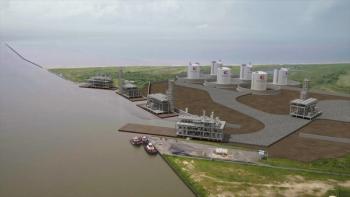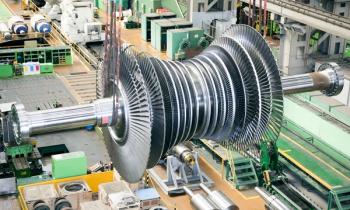
Ansaldo Energia Explores Small Modular Reactor Tech to Enhance, Decarbonize Steel Industry
Nuclear energy, together with renewables and green gas, will establish an energy transition relying on baseload and flexible energy sources at fixed costs.
A consortium of EDF, Edison, Ansaldo Energia, Ansaldo Nucleare, and Federacciai signed a memorandum of understanding (MoU) to integrate nuclear energy for the competitiveness and decarbonization of Italy’s steel industry. The MoU signatories will consider nuclear co-investment opportunities, including the construction of small modular reactors (SMRs), over the next decade.
“The agreement signed today is critical for the Italian steel industry and the entire production chain,” said Antonio Gozzi, President of Federacciai. “The commitment of Italian steelmakers is clear: we intend to lead the transition to a fully sustainable steel industry. Thanks to agreements like this, within a few years, Italy can become the first country in the world to produce fully decarbonized steel. Nuclear power will be a strategic and much-needed component in achieving such goals, providing the industry with a secure and environmentally friendly energy supply.”
Per the MoU, partners will leverage EDF’s SMR technology, Edison’s expertise, and the engineering and industrial capabilities of Ansaldo Energia and Ansaldo Nucleare to establish a nuclear energy supply contract in the medium- and long-term. The consortium’s goal is to implement an energy transition that relies on a baseload, flexible energy source at fixed costs—this enables decarbonization while minimizing overall energy costs.
“Cooperation at both the national and European level is crucial for competition and to move forward on the path to decarbonization,” said Daniela Gentile, CEO, Ansaldo Nucleare. “We are proud of the continued cooperation with partners such as EDF, Edison, and Federacciai. This agreement allows Ansaldo Nucleare to make available its experience and capabilities as a systems integrator and developer of new nuclear technologies. The Italian industry recognizes the importance of a European approach in the nuclear sector, and we hope this will result in the implementation of Italian nuclear projects over the next ten years.”
In March 2024,
The companies will explore prospects for SMRs and AMRs, analyzing opportunities from an industrial point of view. The agreement is designed to progressively assess the degree of maturity of new SMR and AMR reactors and related operational areas, as well as building a path for the analysis, monitoring, and evaluation of joint initiatives for the Italian supply chain. Ansaldo Nucleare and Enel will use these technologies as a development lever for a future advantage in new generation nuclear power.
In February,
Currently, two 700 MWe CANDU 6 type units are in operation at the Cernavoda power plant, which became operational in 1996 and 2007, respectively. Together, these units supply approximately 20% of Romania’s energy needs. Ansaldo Nucleare participated in the construction of the units, which are designed for an operating cycle of 30 years.
Newsletter
Power your knowledge with the latest in turbine technology, engineering advances, and energy solutions—subscribe to Turbomachinery International today.




